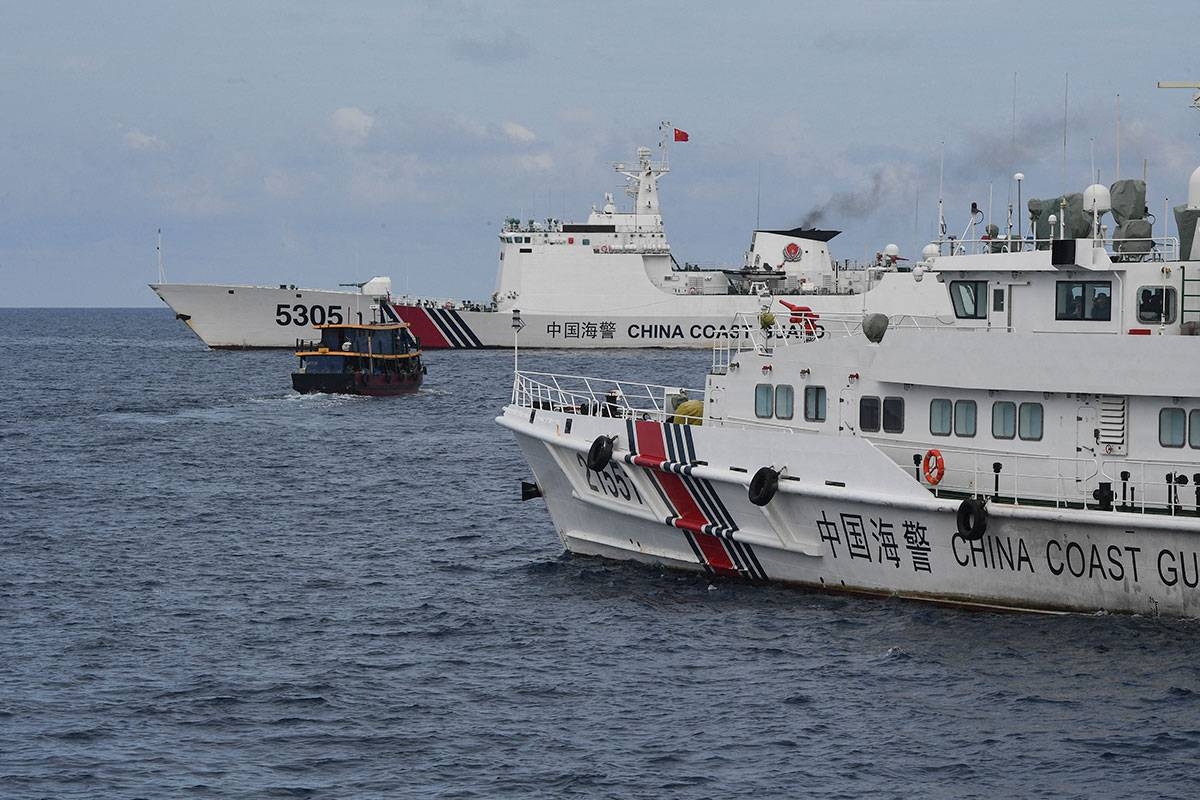WASHINGTON, D.C.: The Association of Southeast Asian Nations (Asean) is “ineffective” in addressing rising tensions in the South China Sea, although the Philippines’ strategy of publicizing its encounters with China in the disputed waters has generated international support for its cause, a US-based think tank said in an exclusive interview with The Manila Times.
Harrison Pretat, associate director and an associate fellow of the Asia Maritime Transparency Initiative of the Center for Strategic & International Studies (CSIS) based here, said that “Asean has proven ineffective in addressing rising tensions in the South China Sea disputes in recent years due to an inability to achieve consensus among all 10 members.”
When asked what the Asean could do to counter China’s aggression in the disputed waters, Pretat said that Asean members should form smaller partnerships and develop a shared approach to manage disputes.
“For Southeast Asian claimants, smaller partnerships between two or three countries to conduct joint scientific research or joint fisheries management might present an easier opportunity to build cooperative momentum and begin to develop a shared approach to dispute management,” Pretat said.
The CSIS said that President Ferdinand Marcos Jr.’s strategy of generating support for its position in the South China Sea is working.
“Under the Marcos Jr. administration and particularly since the start of 2023, the Philippines has adopted a new approach of publicizing encounters with Chinese vessels in disputed waters by releasing photos and video, usually immediately after an incident occurs. They have also invited international media to join patrols in the South China Sea and to watch and record resupply missions at Second Thomas Shoal,” CSIS said.
“These efforts are part of a strategy to generate international support for the Philippines’ position and its victory in the 2016 arbitration award on the South China Sea, which ruled that China’s claims as represented by its nine-dash line had no legal basis. And in this way, the strategy appears to be working,” it added.
The CSIS said that prior to November 2022, only eight countries officially endorsed the ruling of the 2016 tribunal. Since then, the number has grown to 25, with 17 nations — France, Italy, India, South Korea and 13 other European states — issuing statements of support in the last year.
The center acknowledged that while China certainly has an advantage as it has more and bigger ships with capabilities that could operate in the disputed waters, it is the Philippines that “has been winning the narrative battle over the last year,” citing encounters between Chinese and Philippine vessels at the Second Thomas Shoal where several countries have issued statements of support for the Philippines, condemning China’s actions, and invoking the 2016 arbitration.”
US Support
In a separate interview, The Times asked US Department of State Deputy Spokesman Nathaniel Tek if the US plans to beef up the support it is currently giving the Philippines in the wake of the rising encounters between the Philippine and the China Coast Guards.
Tek said that the recent statement issued by State Department Spokesman Matthew Miller and the call between US National Security Adviser Jake Sullivan and his counterpart in Manila show how firmly the US stands with its ally, the Philippines, “in the face of the PRC’s (People’s Republic of China’s) unlawful and coercive actions that continue to undermine and threaten the stability in the Indo-Pacific region.”
Tek said that the Indo-Pacific is a maritime region where the US wants to see countries, whether small or big, “have respect for the law of the sea and where everyone has a set of rules that they abide by.”
“That’s what’s so important to us, and that’s why we’ve been so consistent in calling out the PRC’s expansive and maritime claims that have no basis in international law. We continue to believe that all parties should abide by the 2016 arbitral tribunal ruling because a free and open Indo-Pacific, one in which countries can freely take advantage of the resources in their EEZs, their exclusive economic zones, is essential to the brighter and more prosperous future that everyone in the region wants,” Tek said.
“We’re gonna send a clear signal publicly and privately that the irresponsible, reckless behavior of the PRC was obviously provocative, and it undermines the stability of the region,” he added.
Meanwhile, the CSIS said that the Philippines could seek support from other nations in its resupply missions at the Second Thomas Shoal.
“The United States has supported the Philippines by flying US Navy reconnaissance aircraft over recent resupply missions to Second Thomas Shoal and has issued statements of support in the wake of Chinese attempts to block Philippine resupply ships. The United States and the Philippines have also pledged to conduct joint patrols in the South China Sea before the end of 2023 — with the recent collisions at Second Thomas, there may be consideration on both sides of having US vessels accompany a resupply mission to Second Thomas Shoal,” the think tank said.
“But planners would need to carefully consider the goals and duration of such support — if the US Navy supports one resupply mission, will it join the next? Can supplies to stabilize the condition of the Sierra Madre be delivered in one trip, or would it require several? They also have to consider the optics of such an operation and whether it would be possible or preferable to include vessels from other nations that support the Philippines’ access to Second Thomas Shoal under the 2016 arbitration ruling. And, of course, the potential benefits of getting supplies through to the Sierra Madre would have to be weighed against the risk of an escalatory response from China,” it added.
Asean unity
Sen. Tammy Duckworth, who heads the US Senate Committee on Foreign Relations, said that Asean should unite and uphold international norms.
“I think Asean as a group should unite and uphold those international norms because so many of the members of Asean have incursions into their territorial waters,” Duckworth said.
“The economic well-being of your member nations is being affected by some of China’s policies, like coming into your territorial waters to fish and overfish in your waters. It’s not about confronting China; it’s about ‘Hey, you can’t just come into our territorial waters.’ And that’s the case for everybody, right? We should have freedom of navigation,” Duckworth added.
She also said that Asean should focus on growing its economy.
“That’s where I think the Asean focus should be — on growing your economy, engaging with the rest of the world and re-engaging with the United States. We passed the Inflation Reduction Act. This is a law that opens up opportunities for Asean nations to work with large corporations from places like Korea and Taiwan and Japan to manufacture for the American market because the Inflation Reduction Act prohibits Chinese manufactured goods from coming to the US in certain areas. So, electronic vehicles, batteries, all of that, solar panels, some of these stuff cannot be manufactured in the United States because it’s too expensive. So let’s work with Samsung and Panasonic and SK and, you know, Taiwan semiconductors. Let’s manufacture in Indonesia or Malaysia or Thailand for the US market. I think that’s an opportunity, and I think that’s where Asean, as a group, can unite. And if you establish those relationships and unite as one and support one another and regrow those economic relationships, you’re also gonna grow those diplomatic ties and those friendships as well. But I don’t think that we’re here to confront the PRC,” Duckworth said.
Meanwhile, Tek encouraged the US allies in the Indo-Pacific region, especially in Southeast Asia, to continue forging security ties and habits of cooperation with the US.
“I think all that comes together to really weave together a strong wave of ties between the United States and Asean. Ultimately, send a signal to others around the world, the observers, that the friendship between these two parts of the world is quite strong,” Tek said.
“You’re gonna see people who will say that the United States is not in the Indo-Pacific region, why are you interfering in the affairs of the region? The United States is a Pacific country; we are [an] Indo-Pacific country at the end of the day. We have long-standing historic and geographical ties with the region, and so our future is very much tied to the future of the Indo-Pacific and of Southeast Asia. We have to be present in the region, and I think people in the region want us to be present. We wanted to show that we are [a] strong and active reliable partner to Asean and Southeast Asia. And I think that every time we build on that, you deter destabilizing actions,” Tek concluded.


















